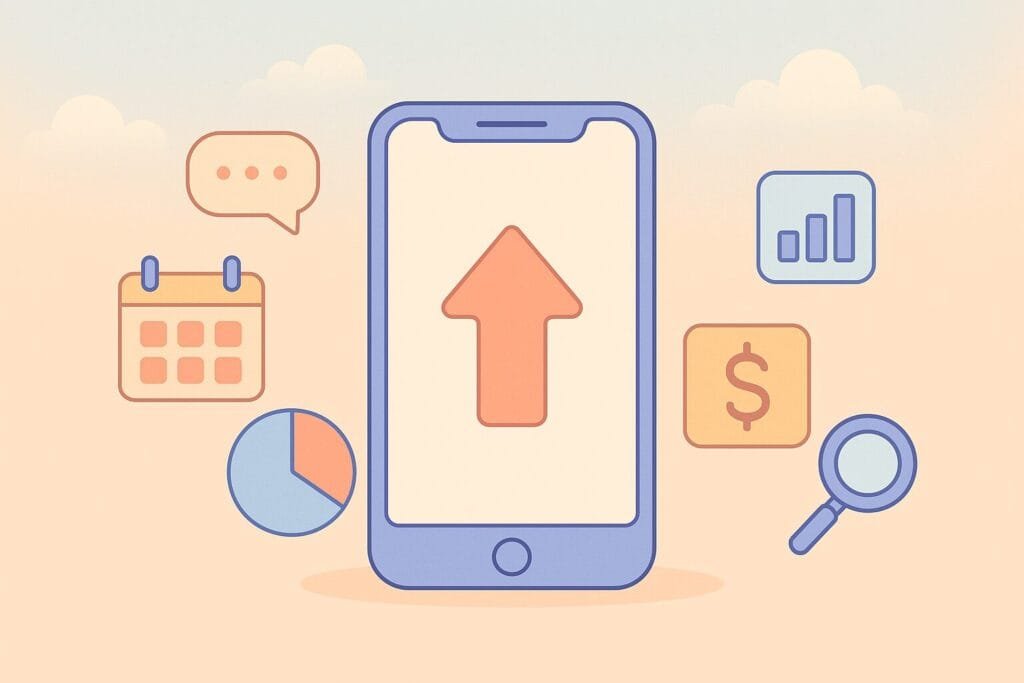In 2025, having a mobile app is no longer a luxury—it’s a necessity. With smartphones becoming the primary way users access digital services, businesses without a mobile app risk falling behind competitors. A dedicated app improves customer experience, drives engagement, and opens up new revenue streams.

According to Statista, over 7.7 billion people will be using smartphones by 2025. This massive user base expects fast, seamless, and mobile-first experiences. If your business doesn’t adapt, it risks becoming irrelevant.
Key Benefits of Mobile Apps for Businesses:
- Customer Loyalty: Apps provide a direct channel to engage users through push notifications, special offers, and personalized content.
- Brand Visibility: A mobile icon on a user’s home screen keeps your brand top of mind.
- Sales Growth: Integrated payment systems and in-app purchasing make it easy to drive sales.
- Customer Insights: Apps offer analytics that help you understand user behavior and preferences.
- Offline Access: Unlike websites, apps can work offline, ensuring access to critical features.
Comparison Table: Mobile App vs. Mobile Website in 2025
| Feature | Mobile App | Mobile Website |
|---|---|---|
| Speed | Faster, native performance | Slower, browser-dependent |
| User Experience | Custom, smoother | Standard, limited UX |
| Offline Access | Yes | No |
| Push Notifications | Yes | No |
| Data Collection | More detailed | Limited |
| Brand Presence | Strong (home screen icon) | Weaker (browser tab only) |
Mobile apps are scalable, adaptable, and can grow with your business. In industries like retail, healthcare, finance, and education, apps are central to operations and customer interactions. Businesses investing in app development are gaining an edge, and those delaying adoption may face declining user engagement and loyalty.
Whether you’re running a startup or an established brand, developing a mobile app in 2025 is a strategic move toward long-term growth and sustainability.

